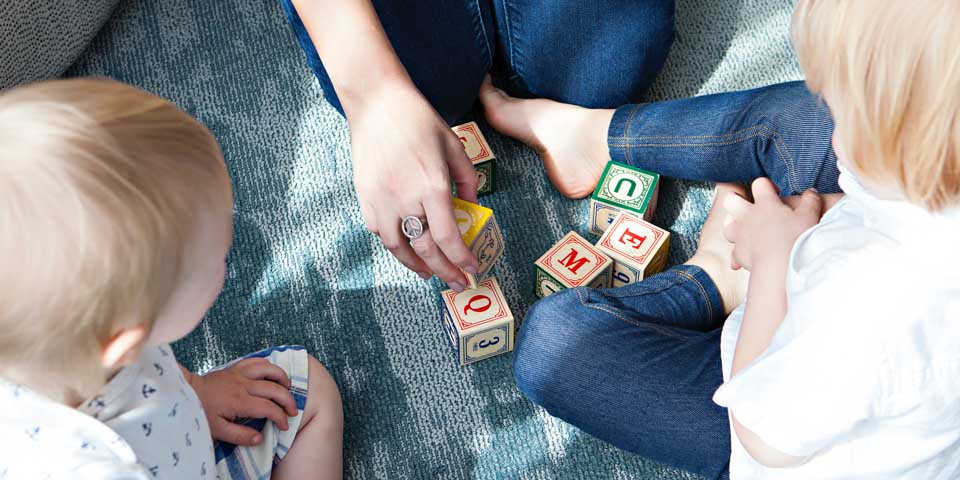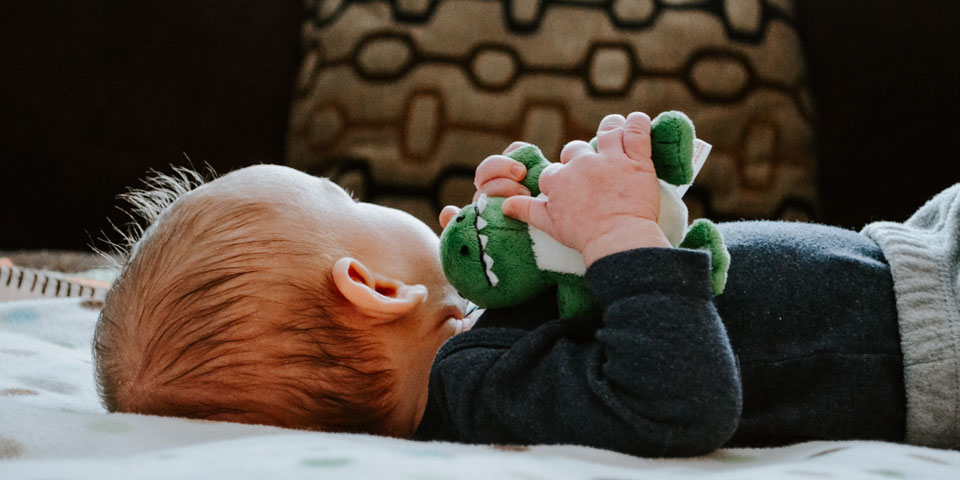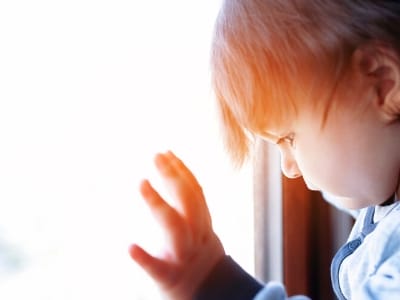Characteristics of autism in children’s checklist
Babies and young children develop at their own pace, and in different ways. So, at what point should you question if your child’s development is on track?
Developmental milestones
From the moment they’re born, children embark on a journey of behaviours and skills called developmental milestones.
These milestones are different for each age group. For babies they might include rolling over or smiling for the first time; while for toddlers, they might include talking or walking.
Each developmental milestone comes with its own ‘average’ range. That is, the typical range in which a child may reach that milestone.
If these milestones are not met in a particular timeframe, then concerns may be raised to investigate why.
While there are many reasons why a child might experience differences in their development, sometimes, the reason babies and toddlers will have developmental differences to their peers is because they are autistic.
Fast Fact: Parents or caregivers are most likely to be the first to recognise developmental differences in young children, although primary healthcare providers and childcare educators may also identify them.

Characteristics
Because autism is related to certain behavioural characteristics, it can be difficult to recognise autism in a child until they are at least 18-22 months of age. For some, characteristics of autism may not become apparent until they reach school age, or even later in life.
However, research studies have identified that there are some characteristics that parents can look for in the first years of a child’s life.
While they may not be indicative of autism, if a child displays some of these characteristics, then it’s wise to take them to see a primary healthcare provider, and possibly a health professional with expertise in autism.
Primary healthcare providers are clinicians who provide the first point of contact within the health system. They include general practitioners (GPs), nurses (including general practice nurses, community nurses and nurse practitioners), allied health professionals, and Aboriginal health workers.
If you have any concerns about your baby or young child’s development, talk to your primary healthcare provider as soon as possible. The sooner you recognise a difference or delay with your child’s development, the sooner you can get help to access appropriate services and support, which can help with future development.
Fast Fact: Some of the characteristics of autism may be noticed before the age of 1, although a reliable diagnosis by a health professional with expertise in autism most often occurs from when the child is 18 months or older.

Checklist
Note that the information below is just a list of some of the common characteristics of autism. It is unlikely that a child will display all of these characteristics. It is important to remember, only a qualified professional can carry out an assessment for autism.
Early characteristics of autism in babies (6 months to one year) may include:
- Reacting in an unexpected way to new faces
- Preferring to make little or no eye contact
- Difficulty in following objects with their eyes
- Hearing their name does not produce a response
- Having limited or no reaction to loud sounds, or not turning their head to locate sounds
- Seeming overwhelmed by some sounds
- Displaying differences in interests for interactive games, for example not interested in games like peek-a-boo
- Chattering, or imitating sounds and words is limited
- Gestures like pointing at an object they want or waving back at others are limited
- Tendency not to imitate the actions of other people
- Dislike being touched or cuddled, or not reaching out when about to be picked up
- Displaying repetitive body movements
Early characteristics of autism in toddlers up to 24 months may include:
- Limited or delayed speech milestones
- Predominantly walking on their toes
- Requires additional support to follow simple verbal instructions
- Gestures and imitating others’ actions are limited
- Showing an intense interest in certain objects, at the exclusion of all else
- Showing an intense interest in unusual or unexpected objects or materials
- Strong sense of ownership of objects or activities they are interested in (not wanting to share), or to engage the attention of others
- Engaging in repetitive actions and activities, such as putting objects into lines or groups
Early characteristics of autism in young children up to 36 months may include:
- Limited or delayed speech milestones
- Requires additional support to follow simple verbal instructions
- Showing differences in interest for imaginative and social play, such as choosing not to play pretend games or play with other children in the usual way
- Wanting routines to be followed and being upset by change
- Extreme sensitivity to sight, sound, smell, taste and some other sensory experiences
- Displaying limited or no sensitivity to some sensory experiences such as heat, cold, touch, hunger, thirst or pain
- Becoming fixated on playing with particular toys, activities or actions
ASDetect: Is an app that provides videos of what some of these signs and characteristics can look and sound like and can be a useful tool for parents and health care professionals for children between 11 and 30 months.

Should you seek an assessment?
It is only natural that you might feel concerned if your baby or child is showing delays with development or is demonstrating some of the possible characteristics of autism.
However, receiving answers sooner rather than later can be a good idea, so you can access support and services for your child, and yourself.
On a personal level, getting a diagnosis can allow you and your family to have a better understanding of autism and how this may impact your child, including strengths they may have. If you think that your child might be on the autism spectrum, it is a personal decision to seek an autism assessment. For some parents it can be emotional identifying that your child may be autistic and can be daunting thinking about the process of seeking an autism assessment. Often well-meaning friends and family are quick to say things like: ‘just take a wait and see approach…things might change with age’. It is important to remember that you know your child best. If you have concerns, it is best to share these with a qualified professional to gather information to shape your decision.
Some of the benefits of seeking an autism assessment sooner rather than later, can include: • Your child (and you) may receive the help and support you might need or desire earlier
- Your child’s educators at kindy or school, may have a better understanding of your child’s strengths and needs – allowing them to support them more effectively
- Your child’s friends and family friends may have a better understanding of your child’s strengths, needs and behaviours – allowing them to interact and support them more effectively
- Your child may have a greater sense of self-identify if they understand themselves better
- Your child may have increased confidence knowing they are part of a larger group of children on the autism spectrum
Fast Fact: The most common age of a diagnosis on the autism spectrum in Australia is between three and five years.
Seeking an assessment
Getting started
If you are curious about your baby or young child’s development, and want to have them assessed for autism, you have a few options:
- Contact your state or territory autism association for information about autism assessments.
- Make an appointment with your GP or family health nurse. They can conduct a screening assessment for autism and if your child shows characteristics of autism they will often then refer your child for an assessment. If you do not agree with the outcome of the screening assessment you can still refer your child to health professionals with expertise in autism for an assessment.
- Talk to a qualified health professional with experience in autism assessment and diagnosis of autism.
You can learn more at Getting a diagnosis for children under 18.
Who will be involved in the assessment?
It will depend on where you go to get an assessment as to who, and how many, professionals will be involved in an autism assessment.
If you go to a private professional, the assessment will generally be completed by one professional such as a Speech Pathologist or Psychologist. In some states, or situations, you will be required to see two different types of professionals to complete an autism assessment before a diagnosis of autism can be made. It is best to check with your local autism support service provider about what is required to receive an autism diagnosis in your state or territory. However, if you seek an assessment via a government funded organisation, a range of professionals will generally be involved in any diagnosis.
The following professionals may be involved in an autism assessment in a multi-disciplinary team according to the National Guideline for the Assessment and Diagnosis of Autism Spectrum Disorders in Australia.
- Medical practitioner
- Nurse practitioner
- Occupational therapist
- Psychologist
- Social worker
- Speech pathologist
- Paediatrician
- Child psychiatrist
- Neurologist
Important: only professionals that receive additional autism assessment training are able to make an autism diagnosis.
Where to get an assessment
There are both government-funded, and private services available for autism assessments. Sometimes, there will be a longer wait time for government-funded services.
You can find a list of local autism support service providers on our Resources page.
For more information go to Getting an autism diagnosis for children.
Get your copy of the ultimate resource: The Spectrum booklet now!
‘The Spectrum: A guide to supporting a child on the autism spectrum’ pdf is now available to purchase.
Click here to learn more and secure this essential pdf guide at a pocket-friendly price!



